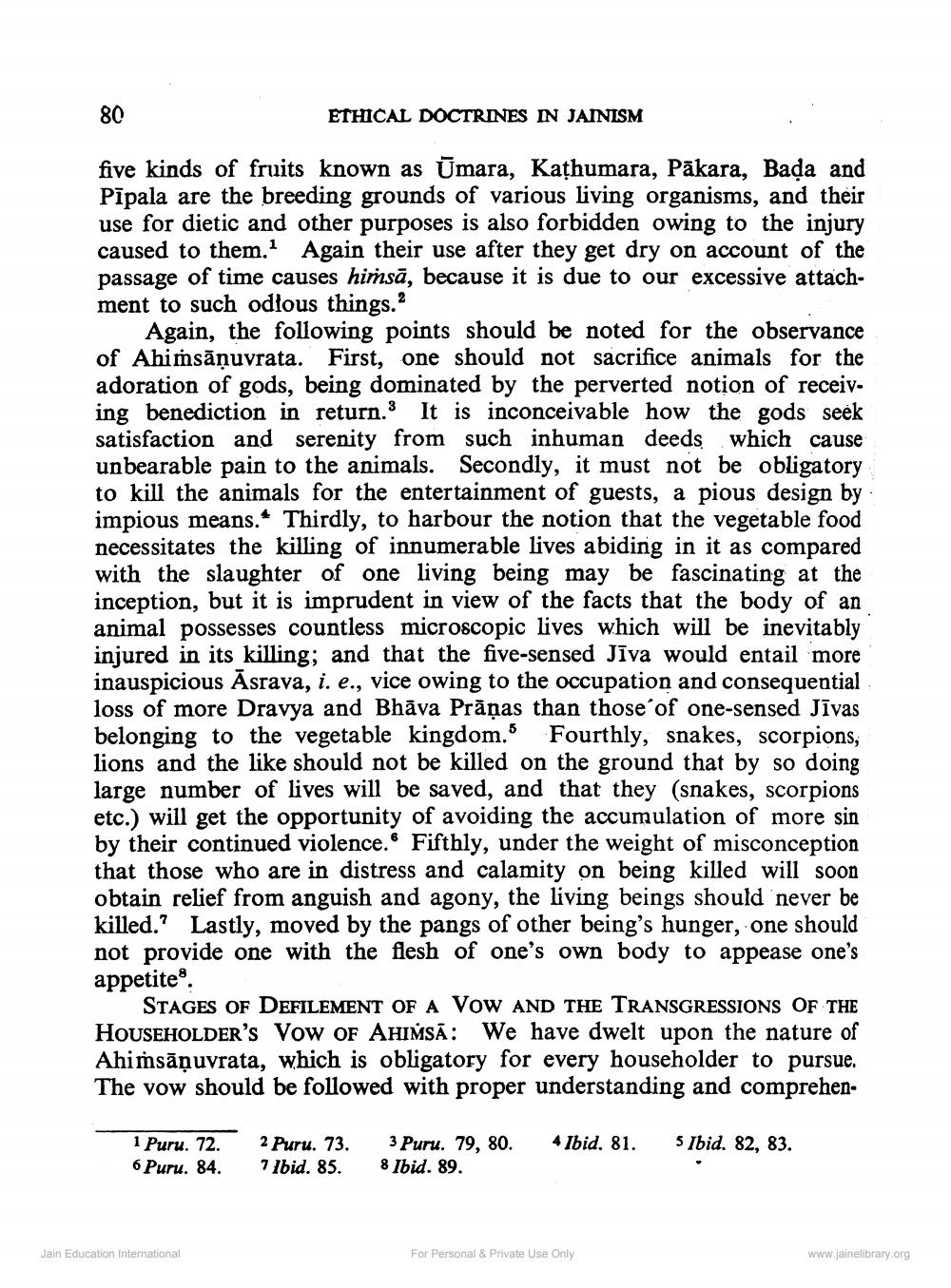________________
80
ETHICAL DOCTRINES IN JAINISM
five kinds of fruits known as Ūmara, Kathumara, Päkara, Bada and Pīpala are the breeding grounds of various living organisms, and their use for dietic and other purposes is also forbidden owing to the injury caused to them.' Again their use after they get dry on account of the passage of time causes hiṁsā, because it is due to our excessive attachment to such odlous things.
Again, the following points should be noted for the observance of Ahimsāņuvrata. First, one should not sacrifice animals for the adoration of gods, being dominated by the perverted notion of receiving benediction in return. It is inconceivable how the gods seek satisfaction and serenity from such inhuman deeds which cause unbearable pain to the animals. Secondly, it must not be obligatory to kill the animals for the entertainment of guests, a pious design by · impious means.* Thirdly, to harbour the notion that the vegetable food necessitates the killing of innumerable lives abiding in it as compared with the slaughter of one living being may be fascinating at the inception, but it is imprudent in view of the facts that the body of an animal possesses countless microscopic lives which will be inevitably injured in its killing; and that the five-sensed Jīva would entail more inauspicious Asrava, i. e., vice owing to the occupation and consequential loss of more Dravya and Bhāva Prāņas than those of one-sensed Jīvas belonging to the vegetable kingdom. Fourthly, snakes, scorpions, lions and the like should not be killed on the ground that by so doing large number of lives will be saved, and that they (snakes, scorpions etc.) will get the opportunity of avoiding the accumulation of more sin by their continued violence. Fifthly, under the weight of misconception that those who are in distress and calamity on being killed will soon obtain relief from anguish and agony, the living beings should never be killed. Lastly, moved by the pangs of other being's hunger, one should not provide one with the flesh of one's own body to appease one's appetite
STAGES OF DEFILEMENT OF A VOW AND THE TRANSGRESSIONS OF THE HOUSEHOLDER'S VOW OF AHIŃSĀ: We have dwelt upon the nature of Ahimsāpuvrata, which is obligatory for every householder to pursue. The vow should be followed with proper understanding and comprehen
1 Puru. 72. 6 Puru. 84.
2 Puru. 73. 7 Ibid. 85.
3 Puru. 79, 80. 8 Ibid. 89.
Ibid. 81.
5 Ibid. 82, 83.
Jain Education International
For Personal & Private Use Only
www.jainelibrary.org




